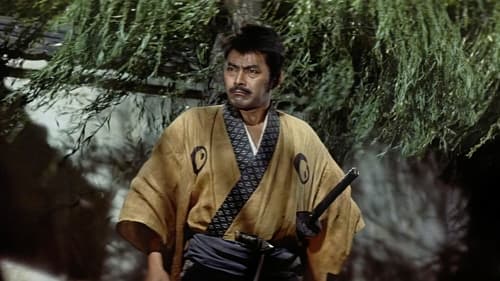
The story tells of a group of samurai who were left leaderless (becoming ronin) after their daimyo (feudal lord) was forced to commit seppuku (ritual suicide) for assaulting a court official named Kira Yoshinaka, whose title was Kōzuke no suke. The ronin avenged their master's honor after patiently waiting and planning for over a year to kill Kira. In turn, the ronin were themselves forced to commit seppuku for committing the crime of murder.

Upon his arrival to Dragon Island, ronin Yagi Hanzo, is propositioned by various shady individuals representing rival gangs to lend his services to them. Branded an enemy for his refusal to become involved with either side, he soon finds himself caught up in an intrigue extending beyond petty gang rivalries, involving a plot by Daimyo in Kyoto to overthrow the government.

Magistrate Kinshiro fights with a group of villains plotting the assassination of the Shogun in Edo.
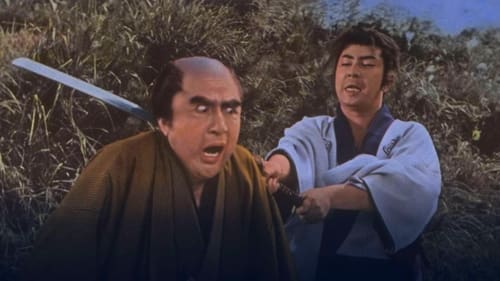
Shoki-no-Genpachi
From the opening theme song to the grand finale, you know that you have found something special as this exciting movie stars the great Misora Hibari in one of her most memorable performances as she plays Shintaro and Oharu, a brother and sister, the children of a lumber dealer who had been murdered by the evil boss Kumagoro who plots to take over Shintaro's family business with the help of a corrupt deputy who has fooled the family into believing that he is on their side.

Detective Hanshichi (Kataoka Chiezo) solves 3 mysterious murder cases. Great story and an impressive all-star cast, a must see!
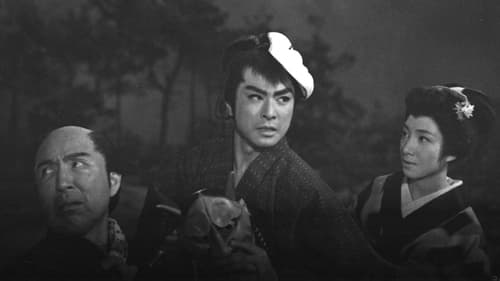
A kindhearted wandering gambler named Hajiro gets involved in a crisis of a village as he passes through and decides to lend a sword in hopes to rescue them.

Young girl Kichiza searches for her missing brother and the person responsible for the death of her parents.

Kinnosuke of Toyama sets out on a private mission to clear his father’s name for a crime he did not commit.

While on the road, famed Yakuza Boss Jirocho is falsely accused of starting a peasant's uprising and chased by the law. Meanwhile, one of his henchmen in an attempt to raise money for the Boss gambles away not only all their funds, but their clothing as well. Jirocho, famed for his honesty and integrity must take on the challenge of rival gangs while trying to elude the government's officials at the same time. Things really heat up when the most famous of all Yakuza Bosses, Chuji of Kunisada gets involved. Will he team up with his old friend or is gang warfare about to erupt?

Two siblings try to unveil the secrets behind a mysterious coin found at a murder scene.

Oda Nobunaga (1534–1582) was a major daimyo during the Warring State period of Japanese history. He was the second son of Oda Nobuhide, a deputy military governor with land holdings in Owari province. Nobunaga lived a life of continuous military conquest, eventually conquering a third of Japanese daimyo before his death in 1582. Telling the story of his rise to prominence as he leads an army of 4,000 men against the 40,000 troops of Lord Imagawa Yoshimoto to prevent the arrogant daimyo from crushing the Oda clan and taking control of the entire nation. From a newly restored anamorpic widescreen print, this is the ultimate warlord movie.

Early film directed by Eiichi Kudô.
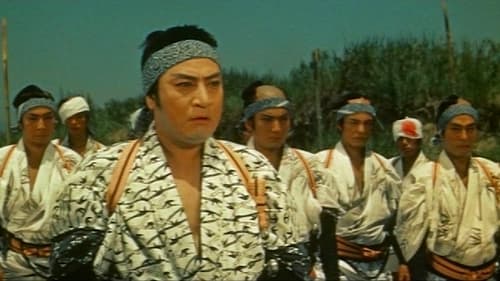
One of the great stories from Japan’s rich history comes to life in this true tale of the bloody showdown between two rival yakuza gangs in the 1840’s. The battle between Boss Sukegoro of Iioka and Boss Shigezo of Sasagawa has been portrayed many times, most notably in the first Zatoichi film, where the blind man befriends the tubercular ronin Hirate Miki, before cutting him down in one of the great duels in cinema history. This all-star extravaganza pulls out all the stops, with appearances by virtually all of the great actors and actresses from Toei’s studio at the time. Ichikawa Utaemon’s portrayal of the kind-hearted, noble yakuza boss Shigezo of Sasagawa contrasts sharply with the devious Sukegoro of Iioka. Corrupt as he may have been, his men were all willing to give up their lives for him.
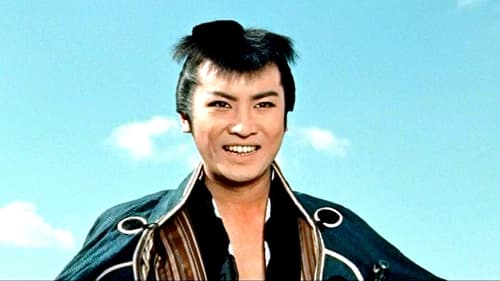
When Boss Juzo's Shinmachi Yakuza family struck fear into the hearts of his adversaries, Boss Shohei's Okabe Yakuza family with a merciless gang of raiders, Itaro of Asama was missing. With the courage of a lion he had gone off to face the enemy and settle the score all by himself. As a result he had to take the blame in place of Boss Shohei, and went off to adventures on his own.

Kataoka Chiezo stars as Murasaki Zukin, a mysterious hero of the people who helps those in need. Now under the rule of the evil Tanuma, the people look to Murasaki Zukin more than ever, to confront and punish those who bring misfortune upon the commoners. Will he be able to bring peace to the land? One of the greatest actors from Toei Studios, known mainly for his swashbuckling roles as powerful swordsmen such as Ryunosuke in SOULS IN THE MOONLIGHT, he appeared in 325 films both before and after the war, beginning with CHUSHINGURA in 1928, and including KUNISADA CHUJI in 1933, and DOKUGANRYO MASAMUNE. While best known for his swordplay, Chiezo really did not enjoy the action, but was able to use his menacing presence to stare down his adversaries. Although Kataoka Chiezo passed away in 1983 at the age of 79, he still has many fans today. This film shows him at his best.
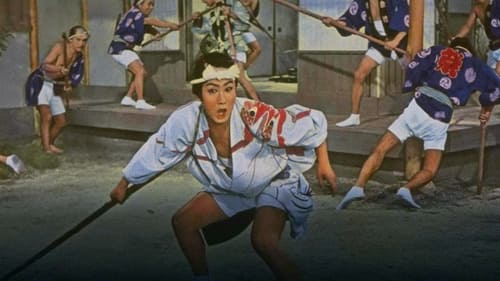
Tasuke stumbles across Kokichi, a distraught man whom having lost his fiancee to Lord Kawakatsu is ready to commit suicide. Tasuke learns that Kokichi's fiancee, Otoyo, was a chambermaid whom Kawakatsu abducted in order to make her his concubine and Tasuke feels compelled to right this wrong. Meanwhile Kawakatsu is dealing in black-market lumber and receiving kick-backs but unbeknownst to him he is under investigation by Lord Izu, one of the Shogun Elders. Will Tasuke be able to rescue Otoyo from the clutches of Lord Kawakatsu and can Lord Izu put an end to his money hungry evildoings.

In the midst of the warring age, a young samurai Kyonosuke defies his former lord Hojo Ujikatsu in order to avenge his parents’ deaths.

Kunisada Chuji is a common folk hero who looks out for poor people in the country who are at the mercy of corrupt officials. Intent on fulfilling a dying wish from one of his henchmen, Asataro, to find a decent home for his young nephew, Chuji descends from his hide-out in the mountain, and heads to the city in spite of numerous dangers that await him there.

As a result of a superstitious belief that twins bring bad luck to the family, newborn twin princesses are separated. Yukihime, who was sent away to be raised by a yakuza family in Edo, returns home after many years to settle an old score.

Thanks to a secret message hidden on the two sacred swords Kaen and Suien, the samurai Genji Kurô (Nakamura Kinnosuke) found the hidden treasure of Lord Yoshitsune. When he gives a piece of the treasure to a couple of poor but honest people so they can pay their debts, it attracts the unwanted attention of several dishonest people, such as pirates, greedy merchants and rebels. While the government is fighting a battle for power against rebels and royalists, all want the treasure by any means possible.

The conclusion of the story of famed swordsman, Sasaki Kojiro. After surviving a series of daring adventures, Kojiro seems to have finally discovered the ultimate happiness in life when he is reunited with Tone, the love of his life. However, his days of happiness are overshadowed by an upcoming duel with his fateful enemy Miyamoto Musashi.

Ronin Sasaki Kojiro pursues his ultimate goal of becoming a master swordsman. Along the way he encounters another great swordsman, Miyamoto Musashi.

This most celebrated all-star movie version of the popular series features Tsukigata Ryunosuke as Mito Komon, the sage who wanders the countryside rectifying government corruption along with his faithful attendants Suke and Kaku.

First part of the famous Dai-bosatsu toge trilogy, based on Kaizan Nakazato’s unfinished long series of novels (41 books, written from 1913 to 1941). Set in the last period of the Tokugawa Shogunate, Daibosatsu Toge tells the story of Tsuke Ryunosuke, a nihilistic swordmaster who doesnt hesitate to kill anyone, bad or good. Despite the authors explicit refusal, the series were later made into plays and movies several times.

Harima Aoyama (Chiyonosuke Azume) was a young hatamoto (samurai bannerman) to the Shogun. He seduced his commoner house maid Okiku (Hibari). He promised that his love was no passing infatuation & she would never suffer for it. She resisted his charms for some while knowing full well that they are of classes that do not intermarry, but in time he broke down her resistance, for how could she help but love him. Political expedience puts the young hatamoto in the way of a marriage with a woman of his own station. This will cement family connections & see his family safely through a crisis, at a time when many clans were finding themselves abolished on any pretext.

In the mist of the warring age (Sengoku Era), the Kyushu based Hayato Clan is faced with a monumental battle to determine their survival.

Genji Kurô is a master swordsman and entrusted with protecting the ancient sword Kaen by the Otsubo family.

Period drama directed by Yasushi Sasaki.

Period drama directed by Yasushi Sasaki.

During a time of war, Lord Ogata is betrayed by two of his closest vassals and killed by his enemy, Sarashina Danjo. Ten years later, Lord Ogata's only living heir, now a skilled ninja, uses sorcery to avenge the murders of his parents.

10th film in the series about Lord Mito. This time, Lord Mito uncovers a conspiracy in Naruto.

This 1956 adaptation of the novel with the same title puts more focus on the characters and their interactions than the previous version.

Kurodagochi Mamoru
Horror film directed by Masamitsu Igayama.

As a result of illness and unemployment, Yamaoka Tatewaki, a "Hatamoto" (or direct vassal of the Shogun), pawned his family heirloom, a valuable Gosu plate for 100 ryo. When, of all occasions, Yokogawa Dewa came to visit and asked to see the Gosu plate on May 5th, Boy's Festival. Yamaoka then sent his steward to borrow the plate back, but the pawnbroker coldheartedly refused. He died soon thereafter of an unknown cause. Soon after that, two warehouses were broken into, but nothing was taken. When Detective Shokichi seeks the help of Young lord samurai, in solving these mysterious crimes that plague the town he takes the case and immediately surmises that the thief was looking for something special. Could the answer be hidden in the coffin of a deceased merchant who had his most valuable things buried with him. The tension mounts and the mystery deepens. Can Young lord solve the case?

This adaptation of a Hideji Hojo novel, about the historical uprising of the Kuroda clan in 1633, is told through the eyes of retainer, Daizen. As his clan’s new leader, Tadayuki, becomes increasingly militant in his opposition to the Tokugawa shogunate, Daizen is forced to reconcile his loyalty to the clan with his loyalty to Tadayuki, who seems dead set on entangling the clan in destructive conflict. The Kuroda Affair’s mise-en-scène is said to have influenced future Toei director Eiichi Kudo. The film also features two of the greatest stars of Japanese period cinema, Chiezo Kataoka and Ryutaro Otomo.
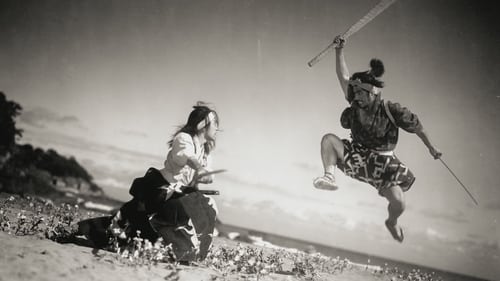
(uncredited)
A humble and simple Takezo abandons his life as a knight errant. He's sought as a teacher and vassal by Shogun, Japan's most powerful clan leader. He's also challenged to fight by the supremely confident and skillful Sasaki Kojiro. Takezo agrees to fight Kojiro in a year's time but rejects Shogun's patronage, choosing instead to live on the edge of a village, raising vegetables. He's followed there by Otsu and later by Akemi, both in love with him. The year ends as Takezo assists the villagers against a band of brigands. He seeks Otsu's forgiveness and accepts her love, then sets off across the water to Ganryu Island for his final contest.

Hijikata Toshizo
The mysterious black hooded man, Kurozukin, helps transport funds raised to fight against the government.

After the Onin War ended in 1477, Kyoto was left in ashes and the nation was in complete disorder. Bands of roving samurai called the "nobushi" terrorized the country under the leadership of Akagaki Genba and overthrew Mangetsu Castle in Tanba Province scattering the few survivors. Lord Niwa's two sons have been studying in China and return to Japan upon hearing of the tragedy in an attempt to restore the clan. On Mt. Oe they meet magician Kiri no Kojiro and try to enlist his aid. With touches of the supernatural and rousing sword-play can they succeed against the evil villains whose symbol is the skull mask?
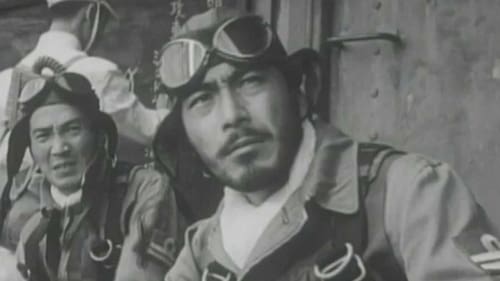
Admiral Isoroku Yamamoto, a brilliant tactician, is a loyal subject of the emperor, despite his grave misgivings about leading Japan's navy into war with the United States. He opposes the attack on Pearl Harbor, but, overruled, he leads his forces to the best of his ability.

Hazama Jujiro
A comedic retelling of the legend of the loyal 47 ronin.
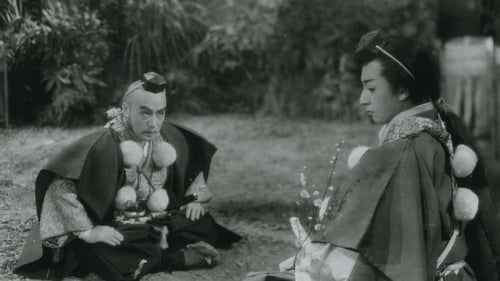
Togashi's Messenger
Yoshitsune Minamoto, disguised with his retinue as monks, must make do with a comical porter as their guide through hostile territory en route to safety.

Kensaku Kanbayashi
Japanese drama film.

After mastering swordsmanship at the dojo of Chiba Shusaku, and unable to serve a clan due to his illness, Hirate Miki becomes a ronin who winds up as bodyguard to Shigezo of Sasagawa leading up to an epic battle.

Jidai-geki about the life of Yasubei Nakayama, a famous ronin who did participate in the revenge against Lord Kira Yoshinaka as detailed in Japan's famous epic Chushingura

Detective Kawana
One Sunday morning, Toshio Esaki, a young dentist, wakes up in his clinic. It seems that he was drunk and spent the night in the clinic instead of going home. When he goes into the laboratory to get a drink of water, he finds a woman wearing a green striped Western-style dress lying there.

Melodrama by Kiyoshi Saeki

Yamada

Kaikû Tsukioka, high priest
Saheita, the final heir of a once rich and respectable family, can't refuse the many villagers that come to him for favours and money, even though he is on the brink of bankruptcy. Around town he is better known by his nickname Mr. Shosuke Ohara.

Tanuma Kandayuu is a high class samurai of the house of Nabeshima. He finds a lavish board of Go (a Chinese Board game) at Kinbei's store. He recommend Kinbei to offer it to his lord. Kinbei hesitates at first, since he knows the board has a mysterious legend surrounding it; it's believed that for every game played on the board, one death is required.

Directed by Eisuke Takizawa

A film dealing with the comings and goings of individuals in the immediate postwar period.

Umetaro
A young man rents an apartment in Tokyo and discover it was built by his father. He falls in love with the daughter of the mistress of the house and decides to marry her. Only to discover that his father is is in debt and wants him to marry Ranko so that she may help his company by granting 1.5 million yen. Teruko decides to borrow money from a greedy bar owner who lends her money on certain conditions and photographs her without her consent. A love traingle forms between Koroku, Ranko, and Teruko. Things complicate when Koroku marries Teruko and Tsugawa threatens them for the money causing many twists and turns.

A pickpocket falls in with a group of prostitutes who have one strict rule: none of them may ever sleep with a man without taking his money — falling in love is forbidden.

Second Editor
A newly hired daily newspaper writer covering the society beat receives an assignment to cover Tokyo at night by walking and observing it. He gets into the right frame of mind by dressing the part as a vagrant with not a penny to his name. He gets into trouble ending up at the police station slammer overnight. He has no material to write about and, with his assignment unfulfilled, faces a cross editor.

Jidai-geki by Ryo Hagiwara

Lord for a Night is a 1946 Japanese film directed by Teinosuke Kinugasa.

1946 Toho film directed by Kiyoshi Saeki

Nakamura Ichiemon
During the Warring States era, Hozoin Kakuzenbo and Yagyu Tajima-no-kami, being best friends, spend their days acquiring skills of the spear, sword and martial arts. Hozoin loses a series of matches with master swordsman Kozumi Ise-no-kami. Bitterly ashamed, Hozoin embarks on a journey, trying to perfect his skills. A few years later, Hozoin is ready and it's time for the ultimate showdown with Ise-no-kami!

Yujiro Toda
In this government-suggested sequel, Sugata again grows as a judo master, and demonstrates his (and by extension, all Japanese) superiority to the foreign warrior.

Based on a short story by Dazai Osamu, produced under the national film law. The film's hero falls in love with the youngest daughter of a family he is visiting to arrange an engagement for his friend who has been drafted to fight in the war.

Kai Harada
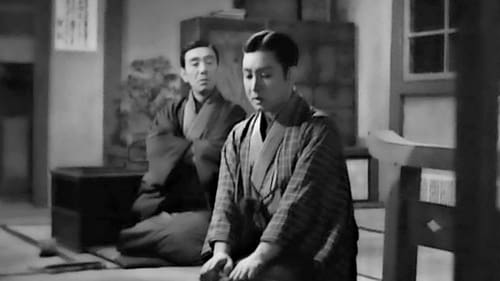
The Way of Drama unfolds in the world of kabuki in Osaka, but also addresses the politics of popular culture and the rivalry between theatrical styles like those used by amateur actors to dramatise contemporary events.

A small community in wartime Japan learn how to make do with less.

Manager Okami
Set in wartime at the Yawata Steel Works in Tobata, Yawata, and Kokura cities in Fukuoka Prefecture, the film depicts people taking on the evil blast furnaces that prevent increased production. The film was shot on location at the actual Yawata Steel Works for an extended period of time, and special effects were created using a miniature blast furnace that closely reproduces the actual one.

Young men endure challenging flight training in the Yokaren, a program feeding new pilots into the Army and Navy. By the time of the filming, the pressure of the war had led the government to shorten the training and expand the age range of the recruits. Yokaren was highly selective, and thus an object of great fascination and desire for boys and young men. In this Navy–sponsored film, Setsuko Hara plays the daughter of a family that often entertains recruits on their days off—a surrogate sister to many trainees. Her fragile younger brother aspires to join the program, but is rejected. With perseverance and much support from Hara and their mother, he surmounts his weaknesses and becomes a flier.

A sixteen-year-old who had been living on her own since her mother died, frequently gets in trouble with the police. She gets sent to an "institute" for young girls in the countryside. There the residents grow their own food, cook and clean for themselves, and are taught language, music, and sewing. While there the young girl slowly begins to form friendships and come out of her shell.
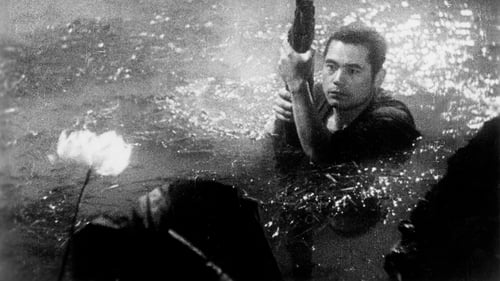
Yujiro Toda
The story of Sanshiro, a strong stubborn youth, who travels into the city in order to learn Jujutsu. However, upon his arrival he discovers a new form of self-defence: Judo. The main character is based on Shiro Saigo, a legendary judoka.

War-time jidaigeki by Eisuke Takizawa. Didn't find anything about it online, but Takizawa was a well-regarded director in his time. Akira Kurosawa worked as A.D. on several of his films.

A 1942 film.

A bizarre murder at a hot springs resort threatens to disrupt an Edo detective's (Hasegawa) vacation. When his hot-blooded wife (Yamada) starts snooping around, however, he finds himself reluctantly drawn in to the case.

Hambei
This epic depicts the battle between Uesugi Kenshin and Takeda Shingen. The focus of the story is the struggle by the unit leader in charge of the main supply wagons and the supply troops to transport materiel to the Uesugi army. To this are added episodes involving an itinerant woman.

This movie is presumed to be lost.

Jurobei, a kaisen tonya (wholesaler in port) in Awa, was wronged and killed on the day of the Dance Festival by the evil merchant & the chamberlin. His brother (Kazuo Hasegawa) vowed vengeance on the day of his brother's death. So every year the villains are worried during the Awa Dance Festival (which is part of the Obon festival), but nothing has ever happened, until seven years later...

Honda Kozuke-no-suke Masazumi
A sentimental tale of the filial love between shogun Iemitsu (matinee idol Hasegawa) and his loyal old retainer Hikoza (comedian Roppa, playing somewhat against type).

Ine Onoda, the eldest daughter of a poor family of farmers, raises a colt from birth and comes to love the horse dearly. When the horse is grown, the government orders it auctioned and sold to the army. Ine struggles to prevent the sale.

Feature film.

Shichiemon Ichikawa - the Troupe Manager
This film depicts a troupe of wandering kabuki players traveling through rural Japan.

Jidaigeki from 1940

The film was produced during Second Sino-Japanese War, before the Pearl Harbor Attack in 1941. The film mainly concerns the training of newly-recruited pilots and their daily life, then their subsequent fighting experiences in China. Army supported the production, providing all the authentic airplanes, training and actual actions. They even provided the older biplanes disguised as Chinese fighter planes. Obinata plays the trainer-turned-combat-leader, who is passionate and cool at the same time. All his boys love him, of course. The film is not as intense, full of sugar-coated camaraderie, until young pilots are killed in action one by one. Last twenty minutes are fairly grim, as the message of self-sacrifice is heard loud and clear.

9th directorial work by Yamamoto Satsuo.

Part two of two.
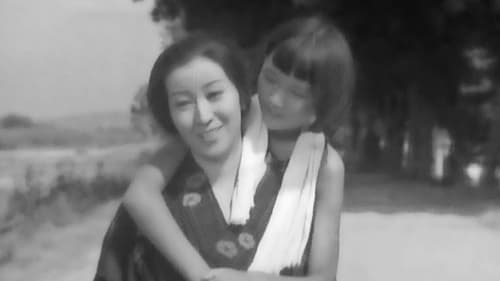
Iwata
Two young girls, Nobiko and Tomiko, go to the same school. The less fortunate girl Nobiko is one of the top students, while the rich girl Tomiko is not. At one time Tomiko's father was quite fond of Nobuko's mother.

ENS Maeda
This film attempts to reconstruct the tension of the Battle of Shanghai through an episode in an understated way, introducting its story in a documentary mode. In the film story, Japan's marine regiment protects Japanese residents and Chinese refugees-women and young children-from rampant street fighting, Shanhai Rikusentai unsparingly uses its first eight minutes for an official-mannered self-justification of the war. From the viewpoint of explaining Japan's military operation,the narration refers to the city s spatial division in sync with maps on screen.

Japanese film.

The film recounts the tragedy of a young outlaw.

Prewar jidaigeki starring Denjiro Okochi
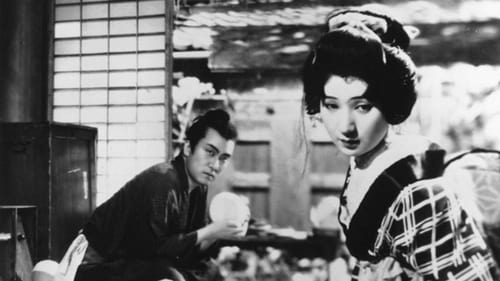
Kitamura
A boy steals a knife from an old samurai, unaware of its value, setting off a strange chain of events.

The sequel to the 1935 film Great Bodhisattva Pass

1930s Japanese film.

A tragic period film about a gangster who comes out of prison and finds it hard to find a place again in society.

Shichibei
A man gets rid of a cheap pot without knowing it contains a map to a treasure. As word spreads, many join in hunting it.

Final installment of the Okochi / Arai / Yamanaka Mito Komon series and just as good as the others (a good deal longer, as well). Again, this film like the other two is similar in tone and spirit to the Yamanaka Tange Sazen film and would appeal to fans of that film.

Japanese historical film.

Adaptation of the novel by Osaragi Jirō. Again scripted by the legendary Yamanaka Sadao

A lost film that tells a story of Jirokichi, a notorious thief

Jirokichi the Rat is a notorious thief. While on the run from the law, he discovers an unexpectedly honourable side of himself, and maybe some form of redemption.

A lost film telling a story of Jirokichi the Rat, a notorious thief
































































